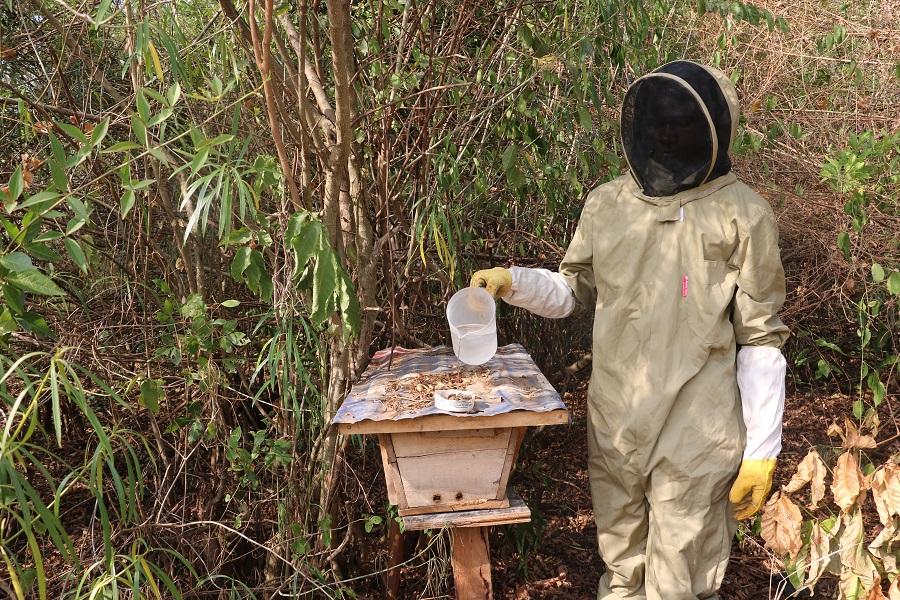Beekeeping success story in Uganda: Amon Kansiime's journey to becoming a thriving beekeeper
Amon Kansiime counts himself lucky. At the age of 24, he is set to become one of the greatest beekeepers in Kikuube district of western Uganda.
This is thanks to a training course in management and apiary he followed in 2022, one of Enabel’s skills training initiatives. Upon completion, he received a start-up kit that included three beehives, protective clothing and gloves.
One year down the road, he is the proud owner of 15 beehives, seven of which are colonized and have started producing honey. And he knows everything about the little creatures that are sustaining him and his family.
You start harvesting honey six months after the hive is colonized,” he says. “After that, you are able to harvest every three months.”
Since each hive produces 6 kilograms of honey at 8,000 shillings per kg, he can expect to fetch 720,000 shillings (195 dollars) every three months from his 15 hives.
He has also learned how to stop termites and black ants from infiltrating the hives, eating the honey and destroying the pillars.
“I put the beehives in cups of used motor oil. However, the garage owners have started selling the oil expensively because they think I am making a lot of money,” he smiles.
He plans to make an additional six hives from local materials and then start adding value to the raw honey.
“Once I have 20 colonized hives, I will begin packing the honey and adding value, such as making bee venom and wax, which will fetch me more money,” Kansiime says.
Bee venom is used for treating inflammation and central nervous system diseases, such as Parkinson, Alzheimer and arthritis, while bees wax in used as thickeners in manufacturing and as a fragrance in soaps and perfumes. The father of one has also trained his wife and siblings in apiary management so that they can assist him in the work.
“I have shared what I learned with my four brothers and wife. Even if I am not present, they can watch after the bees.”
Contrary to what he previously believed; beekeeping is not all that difficult, he says. “You only need to ensure that your hive is colonized and that the bees are given water during the dry season.”
Latest news from this project
No news

